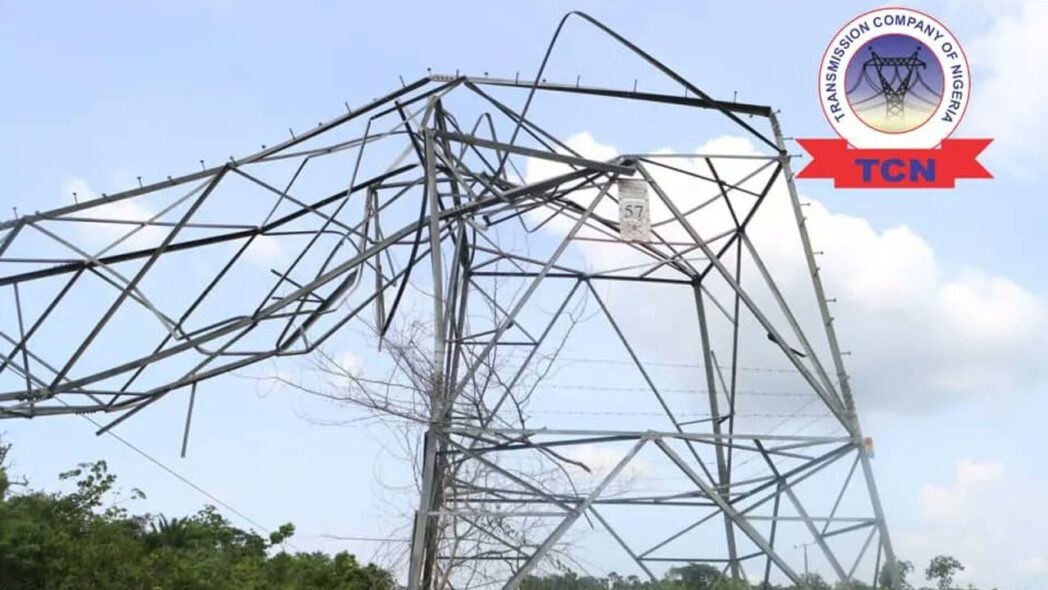


Energy security: Stamp out vandalism now!
The persistent attacks on Nigeria’s transmission infrastructure in 2024 paint a troubling picture for the country’s already fragile power sector. From January to November, there have been no fewer than nine incidents of vandalism targeting transmission towers across the nation.
These acts of sabotage not only reveal a deep disregard for national progress but also emphasise the pressing need for more decisive action to protect critical infrastructure. The pattern of attacks is weird and concerning. On January 10, 2024, the Gwagwalada-Kukwaba-Apo line was struck, followed by a similar attack on the Gwagwalada-Katampe line on February 26.
By April 23, four towers along the Jos-Gombe line were damaged, further worsening the power situation. The most devastating of these incidents occurred on June 12, when terrorists targeted the TCN Damaturu-Maiduguri 330kV transmission line, destroying two towers and plunging Maiduguri and its environs into prolonged power outages.
This attack came just months after a similar assault in December 2023, showing a disturbing trend of repeated attacks on the same critical infrastructure. Perhaps the most telling and catastrophic attack occurred on July 29 in Bayelsa State, where towers T98 and T99 were destroyed, triggering a blackout that lasted more than three months.
As reported by Governor Douye Diri during the All-Nigerian Editors’ Conference, the state is still grappling with the aftermath of this damage, highlighting the long-term consequences of such malicious actions.
In light of these developments, it is imperative that the government take urgent and concrete steps to protect the country’s energy infrastructure. This includes increasing security around transmission lines, deploying Amore advanced surveillance systems, and prosecuting those responsible for such acts of sabotage.
While the attacks are a major factor in the grid’s instability, other systemic issues also play a role. Aged infrastructure, insufficient maintenance, and underinvestment in the power sector all contribute to the grid’s vulnerability. Indeed, these repeated incidents of vandalism in the face of obsolete electricity facilities have significantly worsened the country’s power supply situation with attendant negative impacts on the citizens who have long been bogged down by poor electricity access and supply.
Vandalism of power infrastructure often throws millions of households into darkness, crippling businesses and further compounding the already dire economic situation staring the citizens. Nigeria still struggles with low electricity access rates, particularly in rural areas. Of course, this is one reason for the high rural-urban migration and the attendant consequences of the daily springing up of slum settlements in most cities. There is a clear nexus between these slums and the increasing rate of crimes in different cities across the country.
Alarmingly, the repeated incidents of vandalism are compounding the deplorable state of the country’s power supply. Despite its population and huge resource base, Nigeria is nowhere near the top electrified countries on the continent.
In Africa, countries like Egypt, Morocco, and Tunisia have achieved 100% electricity access, while others like Ghana have 85.9% and South Africa has 84.4%. About 40 million of Nigeria’s population is said to have no access to the power supply. Most of this segment is rural dwellers.
For a country that struggles with low access rates in the face of epileptic power supply, having to contend with vandalism of power infrastructure is a double whammy. There is a compelling need for the government to beef up the security of these power infrastructures. Vandalising this equipment has both economic and national security implications.
Those behind it must be fished out and made to face the full wrath of the law. Above all, residents of areas that host these infrastructures must demonstrate patriotism by supporting the government’s efforts to guard them. This act of sabotage has to end, and all Nigerians of goodwill must support concerted efforts to achieve this. The need for infrastructural resilience in Nigeria has never been more critical. With the power sector in a state of disrepair, the failure to protect key transmission lines could lead to irreversible damage to the country’s economic stability.
If we are to move forward as a nation, we must prioritise not only the restoration of the grid but also the protection of the critical infrastructure that sustains it. The incessant attacks on transmission towers are not just criminal acts; they are symptoms of a broader failure in governance and security.
The government must take immediate steps to address this growing menace, ensuring that those responsible are held accountable and that Nigeria’s energy future is no longer held hostage by vandals and terrorists. The time for action is now.



